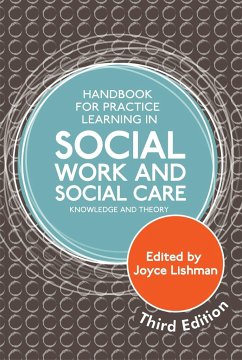
Cheryl Regehr (Vice-President and Vice-President Provost and ProvoGraham Glancy (Director and Division of Forens Associate Professor
Broschiertes Buch
Mental Health Social Work Practice in Canada
Versandkostenfrei!
Versandfertig in über 4 Wochen

PAYBACK Punkte
30 °P sammeln!




Clear, comprehensive, and research-based, this is the leading Canadian introduction to mental health practice in social work.
Cheryl Regehr is the vice-president and provost of the University of Toronto. She is a professor in the Factor-Inwentash Faculty of Social Work with cross-appointments to the Faculty of Law and the Institute for Medical Sciences at the University of Toronto. Previously she was dean of Social Work and director of the Research Institute for Evidence-Based Social Work and the Centre of Excellence for Child Welfare. In addition, she has been a member of several editorial boards for international scholarly journals and of committees adjudicating grants for national granting councils. Her practice background includes 20 years of direct service in forensic social work and emergency mental health and in the administration of mental health programs. As a forensic social worker, she specialized in workplace trauma interventions and civil litigation and criminal court assessments of trauma victims and violent offenders. Her current research uses experimental design methods to examine factors influencing social work assessments of suicide risk, and qualitative studies addressing the impact of video evidence of violent crime and archival work on professionals. Graham Glancy is a Founder of Forensic Psychiatry in Canada and is past-president of the American Academy of Psychiatry and the Law. He is an associate professor of Psychiatry, director of Forensic Psychiatry, and an adjunct professor in the Faculty of Law at the University of Toronto, and an assistant clinical professor at McMaster University. His clinical work involves consultation with the legal and medical community, correctional facilities, and private companies. In his previous role as chief of the Forensic Service at the Clarke Institute of Psychiatry (now the Centre for Addiction and Mental Health), he was instrumental in developing and running the Sex Offender Treatment Program and the Relapse Prevention Group. He was also director of the post-graduate Psychiatry program at the Clarke Institute. He is a past-president of the Canadian Academy of Psychiatry and the Law and was on a team to develop the first Canadian examination for certification in Forensic Psychiatry. In 2000, he was awarded the Bruno Cormier Award for outstanding contribution to Forensic Psychiatry.
Produktdetails
- Verlag: Oxford University Press, Canada
- 3 Revised edition
- Seitenzahl: 384
- Erscheinungstermin: 5. Dezember 2021
- Englisch
- Abmessung: 236mm x 157mm x 18mm
- Gewicht: 540g
- ISBN-13: 9780199037032
- ISBN-10: 0199037035
- Artikelnr.: 63033361
Herstellerkennzeichnung
Libri GmbH
Europaallee 1
36244 Bad Hersfeld
gpsr@libri.de
Für dieses Produkt wurde noch keine Bewertung abgegeben. Wir würden uns sehr freuen, wenn du die erste Bewertung schreibst!
Eine Bewertung schreiben
Eine Bewertung schreiben
Andere Kunden interessierten sich für











